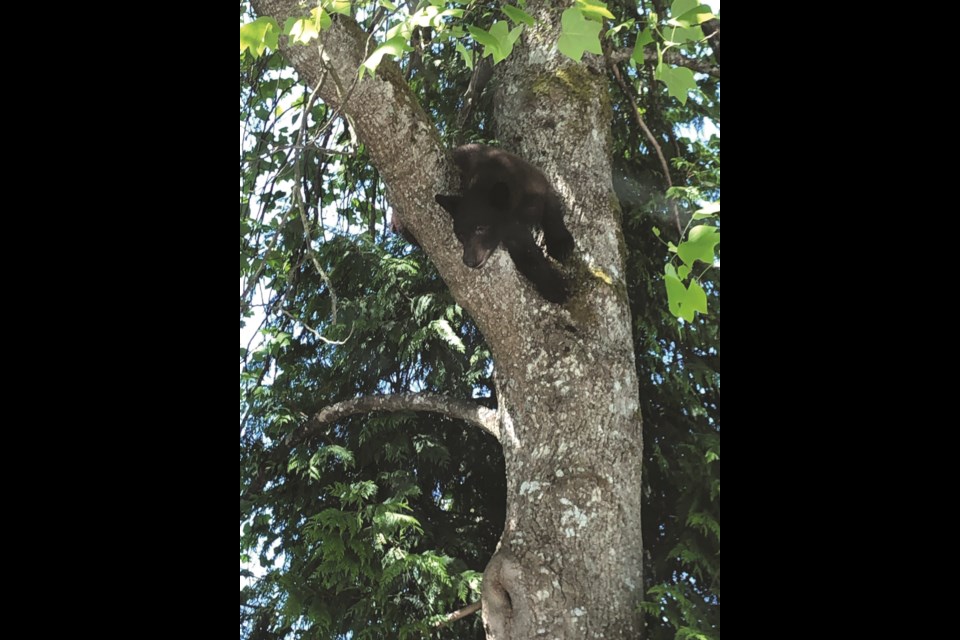So far this year, one bear on the Sunshine Coast has been euthanized by the B.C. Conservation Office Service (COS).
On May 13, COS received a report of a young bear, likely a yearling, accessing attractants in a very dense part of Sechelt. When conservation officer Leyland Klassen arrived, the bear was up a tree, Klassen told Coast Reporter on June 10.
COS tranquilized the bear, tagged it and relocated it to Crown land in the Halfmoon Bay and Secret Cove area. But within 24 hours, the tagged bear returned to the Sechelt area.
On the afternoon of May 18, while school was in session, the bear was reported to be accessing attractants near École du Pacifique in Sechelt.
The bear was euthanized, COS said, because it was accessing food at many hours throughout the day, there had been days of reports of its activity, and it was accessing food in close proximity to the school.
All of the people and residents in the area that COS spoke to addressed their attractants.
“You manage the people’s behaviour and then the bear behaviour follows,” Klassen said.
Klassen said the bear season this year has been fairly uneventful and quieter than usual so far. Similar to previous years, COS is responding to unsecured attractants – mostly garbage. Other reports include bears breaking into sheds and vehicles to access attractants. In one incident, a bear broke into an unoccupied home to get food.
People should call COS if they see a bear doing something unusual, such as accessing non-natural food sources. Klassen said the earlier people call in a situation with a bear, the more options COS has to address the conflict, whether by educating about attractants or hazing the animal. It is only when situations escalate into more aggressive behaviour that COS’s options are limited.
Klassen said COS officers are available to answer questions from the public. The new WildSafeBC coordinator, Russell Dunsford, will also be actively educating the Sunshine Coast community about how to prevent and reduce wildlife conflicts. More information is available at wildsafebc.com.
Dunsford started his new position in late May. He told Coast Reporter he is familiar with human-wildlife conflict, having grown up on the Sunshine Coast and attended school in Halfmoon Bay and Sechelt before attending Simon Fraser University for a bachelor degree in resource and environmental management.
This season, Dunsford will advise residents on how to manage attractants including garbage, bird feeders, compost piles, pet food, fruit trees and berry bushes. He’ll also be conducting bear spray training workshops and providing information at public events in partnership with COS.
Currently, black bears are quite active on the Coast in their search for food post-hibernation, and Dunsford said many are food-conditioned.
So far, Dunsford has also received many reports of coyote activity and their conflicts with pets. Stories of pets making coyotes run away, Dunsford said, are “definitely the exception, not the rule. Don’t take the risk with your pet, and make sure your pets are on a leash or under your control.”
With several recent incidents of deer being hit by cars on the Coast, Klassen said drivers need to slow down, but acknowledged that not all collisions can be avoided. Wildlife tend to blend in well with their surroundings, and may dart out into traffic.
At this time of year, does will regularly leave their fawns in a safe place for long periods of time while they forage for food. Klassen said residents should call COS if the doe hasn’t returned in 48 hours, but otherwise monitor the situation from a distance. Fawns should not be approached by humans, since the scent of people may cause the mother deer to abandon it. Dunsford noted it is illegal under the Wildlife Act to move wildlife without any special permission.



